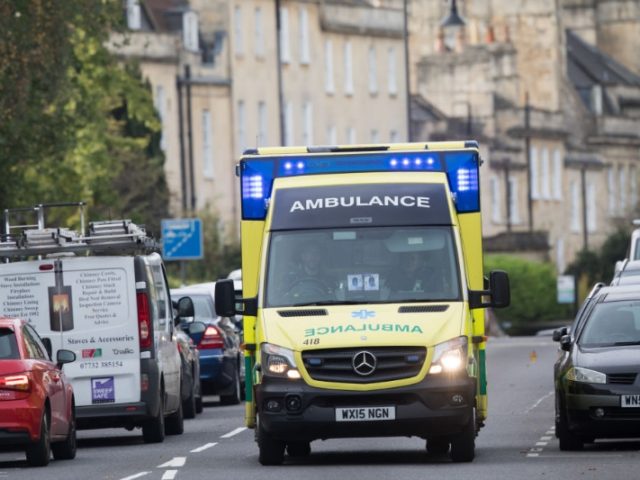A leading surgeon has warned that the UK’s knife crime epidemic is having a “ripple effect” across the National Health Service (NHS), causing operations to be cancelled, delays in seeing patients and strains on ambulance services.
The National Clinical Director for Trauma at NHS England, Professor Chris Moran highlighted the growing problem in comments this week, saying: “there’s a large number who’ve got very serious injuries who need the trauma team, they need admission, they need … intensive care… it means operating time is lost, while we do extra emergency cases.”
Explaining that this intense drain on resources caused by unplanned emergency operations caused by surging knife crime in the UK means less time is available for routine work, the top medic continued: “it’s having a significant increase in acute services in the NHS and then a knock-on effect in elective care because you end up cancelling surgery to operate in these cases, a knock-on effect on general practitioners who are having to try and pick up the pieces.”
Lifting the lid on the impact of knife crime on the NHS to British newspaper the Daily Mail, Prof. Moran even said that police had even had to be called to monitor some hospital wards after armed gangs tried to attack patients they had previously injured. He described them as trying to “finish the job” while the victims were in hospital.
The warnings from Prof. Moran come amid rising levels of violent crime across the country. Recent figures by the Office for National Statistics show that violent crime has increased by a staggering 19 per cent in one year. Among the figures was a six per cent rise in knife crime, with 40,829 incidents reported across England and Wales involving a knife or sharp object, an average of 112 every day.
Research by NHS England also shows the number of teenagers admitted to hospital has increased by 54 per cent over a five year period, from 656 admissions in 2012 to 2013, to 1,012 between 2017 and 2018. Admissions across all ages for knife and sharp object injuries – such as glass – have increased by almost a third since 2012.
Police have blamed a lack of resources for having failed to deliver in some respects. In 2018, the head of the Police Federation said “we are moving into an area where some crimes will not be investigated, whereas two to five years ago they were… We can’t do everything – there are going to be situations where we simply can’t deliver the policing we want to deliver”.
The top officer said continued: “in those cases we are failing the public but that’s not the fault of police officers on the ground, and in some cases it’s not the chief constable’s fault. You can only slice the financial cake so many ways and you have to prioritise … the public are already suffering and they are going to suffer more and more.”
There has also been a greater focus by some forces on so-called “hate incidents” and “hate crimes” which have further stretched police budgets and officer time. Last year, a report found that the London Metropolitan Police had determined that ‘low-level’ crimes such as minor vandalism and assault without serious injury would not be investigated, however any accusation of a “hate crime” would have to be looked into.

COMMENTS
Please let us know if you're having issues with commenting.